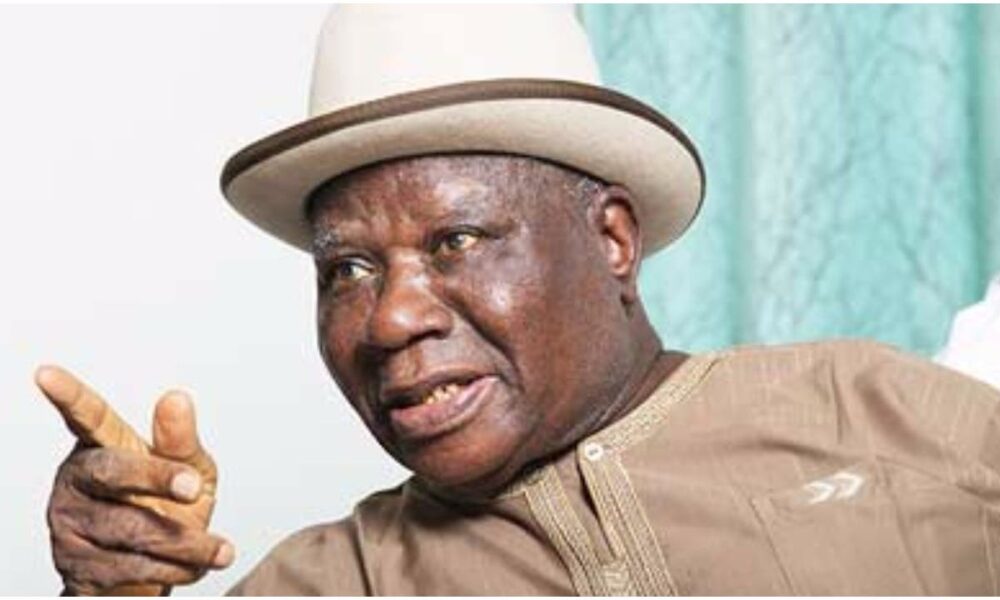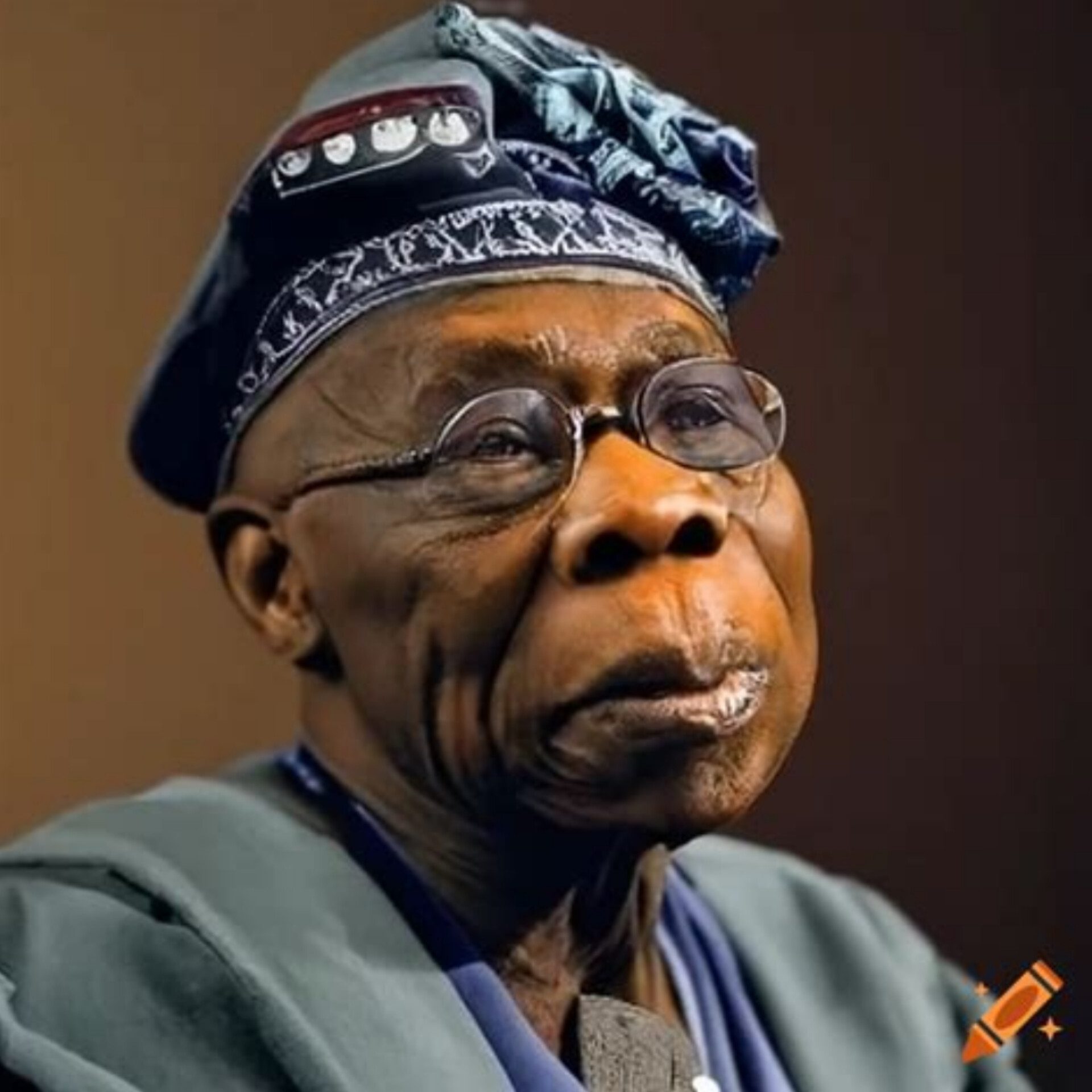Chief Edwin Clark has publicly denounced the recent judgment by Justice James Omotoso regarding the Rivers State House of Assembly, asserting that it was “obtained by fraud” due to key facts being hidden from the court.
He claimed that the former Speaker of the Assembly, Rt. Hon. Martins Amawhule, and 26 other members withheld critical details that could have significantly impacted the judgment, thereby misleading both the Federal High Court and the Court of Appeal.
Clark clarified that the issue is not with the integrity of the judges themselves but with the plaintiffs, who he alleges concealed relevant information about their defection from the Peoples Democratic Party (PDP) to the All Progressives Congress (APC) in December 2023.
According to Clark, this defection automatically stripped the former Speaker and his colleagues of their Assembly seats under Section 109(1)(g) of the 1999 Constitution, which stipulates loss of legislative seats upon defection.
Clark argued that Justice Omotoso’s judgment in favor of the former Speaker became void as soon as they defected, thereby losing their legal standing in the Assembly.
He also criticized Justice Okorowo, who presided over a related case prior to his promotion to the Court of Appeal, for halting the Independent National Electoral Commission (INEC) from filling the now-vacant seats.
Clark alleged that Justice Okorowo, by granting this stay, enabled the plaintiffs to present themselves as legitimate Assembly members.

Clark’s statement further criticized the Appeal Court’s stance on Governor Siminalayi Fubara’s appeal, alleging that the judges made inflammatory remarks without fully considering the impact of the plaintiffs’ defection.
The elder statesman concluded his statement by calling on the Inspector General of Police to investigate the former Speaker and his colleagues for possible perjury, alleging they provided contradictory statements under oath.
Clark asserted that this series of legal maneuvers has created an unjust outcome, urging judicial authorities to re-evaluate the case in light of the hidden facts.
The Statement reads, “Firstly, it is necessary to explain to the public that judgement obtained by fraud has nothing to do with the integrity, disposition, character and competence of the Justices, and in fact, they are not aware whether the judgement, the writ is obtained by fraud or not.
“It is what the litigants or party to a case present in their pleadings that the trial judge would concentrate on in writing his judgement. Anything different from the originating pleading will definitely amount to a different judgement.
“So, the onus is on litigants to present truthful and factual statements and evidences before the Courts. Like it is said, the truth, the whole truth and nothing but the truth, as they would swear when taking oath.
“Judgment obtained by fraud is where facts which should have been presented to a court of law to arrive at the correct decision are not presented or are fraudulently presented or plaintiff was wrongly described and caused the court to arrive at a different or wrong decision; or if such facts are either deliberately hidden from the court, ‘judgement was obtained by fraud’.
“There are several cases which fall under the phrase ‘judgement obtained by fraud’ have been deliberated upon by eminent judges, both in the House of Lords of England and here in the Supreme Court of Nigeria.
“I wish to also cite instances within and outside Nigeria, when issues of ‘judgement obtained by fraud’ were exhaustively examined by the Supreme Court of Nigeria and superior Courts in Britain, they include that of L. C. Power and others Vs. Chief Akin Olugbade and others, reported in (1974) All Nigerian Law Report, pages 226-234 and presided over by Elias, CJN, Coker and Ibekwe, JJSC; Jones co Vs Beard H. L. Judgement obtained by Fraud (1930) Page 48 4, A 11 R, Jurisdiction to order a new trial; Preston Banking Co. Vs. Williams Allsup, Jurisdiction to set aside judgement obtained by fraud. C.A. (1891-4)688 – ; Mac Carthy Agard (19 33 2KB 417), Where a defendant was wrongly described In the writ – the judgement therefore was in wrong form – a mistake due to the defendant’s fraud.
“Fortunately, the Judges have the ability to correct any judgment they delivered based on fraud, when the correct facts are brought before them because they have the power to do so.
“Applying this principle to the Originating Summons filed by the former Speaker of the Rivers State House of Assembly (RSHA), Rt. Hon. Martins Amawhule, and 26 other members, there is nothing in the Originating Summons to show that, the former Speaker Rt Hon. Amaewhule as a result of differences amongst members in the Rivers State House of Assembly, and the bombing of the complex, when the former Speaker was planning to impeach the newly elected Governor of Rivers State, Sir Siminalayi Fubara.
“But the members of the House loyal to the Governor reacted by attempting to also impeach the former Speaker. As a result, the House became divided into two factions, with one faction headed by the Amawhule and the other by the House Leader, Edison Ehie.
“This is the subject matter of the Originating Summons, which he deliberately hid this vital fact. The Court of Appeal, therefore, could not go into the trial to examine the evidence before making a pronouncement of its judgement that the former speaker remains the legitimate Speaker of the Rivers State House of Assembly.
“The question of impeachment of the former speaker, Martins Amaewhule and the reason for his impeachment was not before the Court of Appeal because they were not pleaded.
“At this juncture, therefore, it has become very necessary to follow up the development of the case filed by the former Speaker of the Rivers State House of Assembly (RSHA), Martins Amahwhule and his colleague members of the RSHA, before they defected on 11th December, 2023. And defection is a constitutional issue. Section 109 (1) (g) of the 1999 Constitution as Amended, says that one automatically lose one’s seat once the person defects from the political party that sponsored them, to another political party.
“Therefore, Martins Amawhule and his colleagues who defected, lost their seats the moment they defected. The then Leader of the RSHA, Edison Ehie, did not join in the defection, and was elected the Speaker of the House. Edison Ehie in carrying out his constitutional roles as Speaker of the RSHA, then filed a suit in the Court, before Justice Danagogo, who giving his ruling on the matter, stated that Edison Ehie is the Speaker.
Edison Ehie, as Speaker of the RSHA, announced the Defection on the floor of the House.
“He also informed the Independent National Electoral Commission (INEC) of the situation in the House. The matter, thereafter, became a public event.
“Meanwhile the former Speaker, Martins Amawhule brought a Suit against the President of the Senate and the Speaker of the House of Representatives, the Inspector General of Police and the Governor of Rivers State, Siminilaye Fubara, even after himself and his ‘friends’ had defected from the Peoples Democratic Party (PDP) to the All Progressives Congress (APC).
“This case died a natural death, when there were no longer Plaintiffs in the matter, because to continue such a case, he must be the Speakeror even member of the RSHA.
“But strangely, the same Martins Amawhule and his colleagues who had all defected, instituted another case in another court before Justice Okorowo, and swore to an Affidavit to support their suit, where in paragraph 9, they admitted their defection from the PDP to the APC.
“The proceedings in this case were not transparent, and Justice Okorowo even helped the Plaintiffs to stop INEC from taking further actions, such as conducting election to fill the vacant positions, before he earned promotion to the Court of Appeal. The records are there.
“The case continued till 22nd January, 2024, when Justice James Omotoso appeared to deliver his judgment. But unfortunately, Justice Omotoso’s judgment had died since on the 11th of December, 2023, when the members, including the former Speaker, Martins Amawhule and his collegues defected from the PDP that sponsored them to the RSHA to the APC.
“The defection was made public by the members waving APC flag and singing APC songs. They were later officially received by the APC Care-Taker Committee headed by Tony Okocha in port Harcourt, on Wednesday, 13th December, 2023.
“The then Speaker who is the 2nd Plaintiff in the justice Omotoso’s case, and his colleagues who defected from the PDP to the APC, instituted a new and fresh Suit in another federal high court presided over by Justice Okorowo.
“The first sitting under him took place on 15th December, 2023, and went forward. He even helped the Plaintiffs by writing to INEC. This was the situation in this case before, I repeat, Justice Okorowo earned his promotion to the Court of Appeal.
“Thereafter, Justice Omotoso came up with his judgment on 24th January, 2024. But little did he know that his case died since on 11th December, 2023, when the Plaintiffs in the case defected to the APC, thereby, losing their seats in accordance with section 109 (1) (g) of the 1999 Constitution of the Federal Republic of Nigeria. That situation has not been reversed by any Court of law.
“It must be remembered that some of us who have practiced law for about 60 years, still know the rudiments of law. From the date of 11th December, 2023, to 22nd January, 2024, to date, these persons are no members of the RSHA known as martins Amawhule and his 25 colleagues.
“Therefore, the judgment allegedly given by Justice James Omotoso is null and void, and was obtained by fraudulent practice.
“Similarly, the panel of Judges of the Federal appeal Court that sat on the so-called Justice Omoto’s judgment had nothing to say, other than abusing and insulting the governor of Rivers state, Siminilaye Fubara for “probating and reprobating, and blowing hot and cold”, and that he “has no moral right to come back to the Appeal Court or the Supreme Court”. As a matter of fact, the statement by one of the Judges was uncalled for.
“I repeat, there is strong evidence that between Monday, 11th December, 2023, and Monday, 22nd January, 2024, the Plaintiffs i.e. the former speaker and 27 other members ceased to be members of the Rivers State House of Assembly, and as a result, they no longer have the legal representation in Justice Omotosho’s case.
“Therefore, Justice Omotosho’s judgement is a nullity and entirely obtained by fraud. It is therefore most unfortunate that the Court of Appeal who heard the Governor’s appeal against Justice Omotosho’s judgement carried its anger against the Governor to create a scene, and did not say anything about the issue in court.
“What is before the nation, is a former Speaker of a State House of Assembly, in the person of Martins Amawhule, who lied a number of times, on oath.
Finally, I call on the Inspector General of Police (IGP), to investigate the misuse of oath by former Speaker Martins Amawhule and his colleagues, as they lied severally under oath.
“In some of the oaths, they claim to be still members of the PDP, whereas in others, they claim otherwise.”




